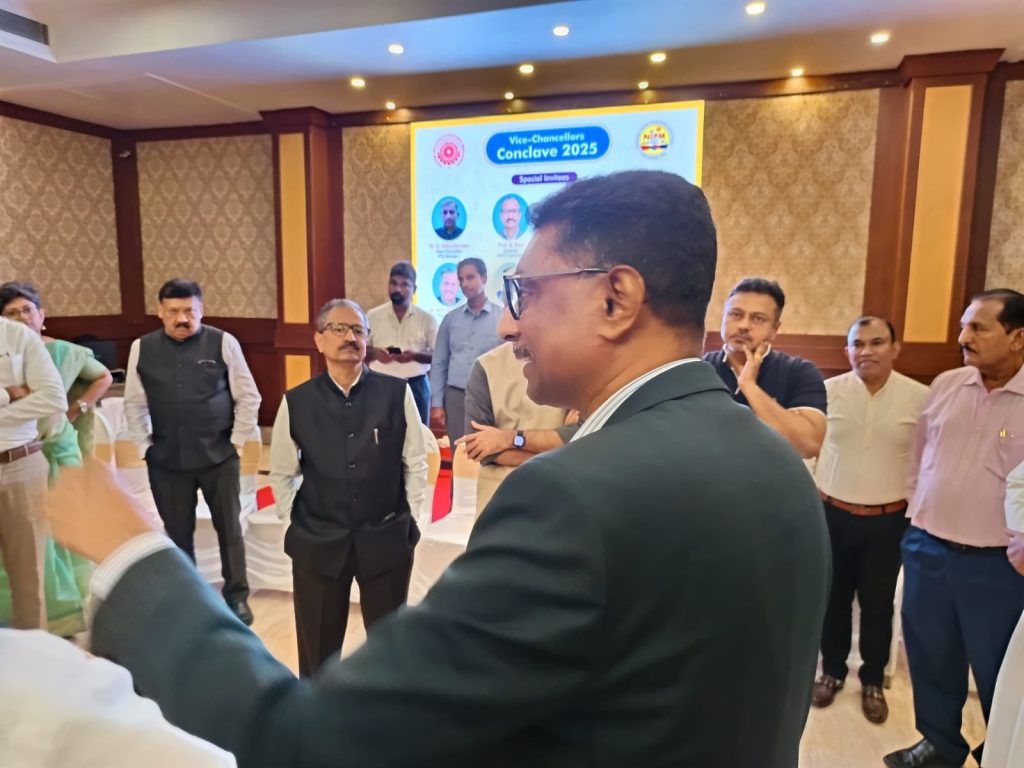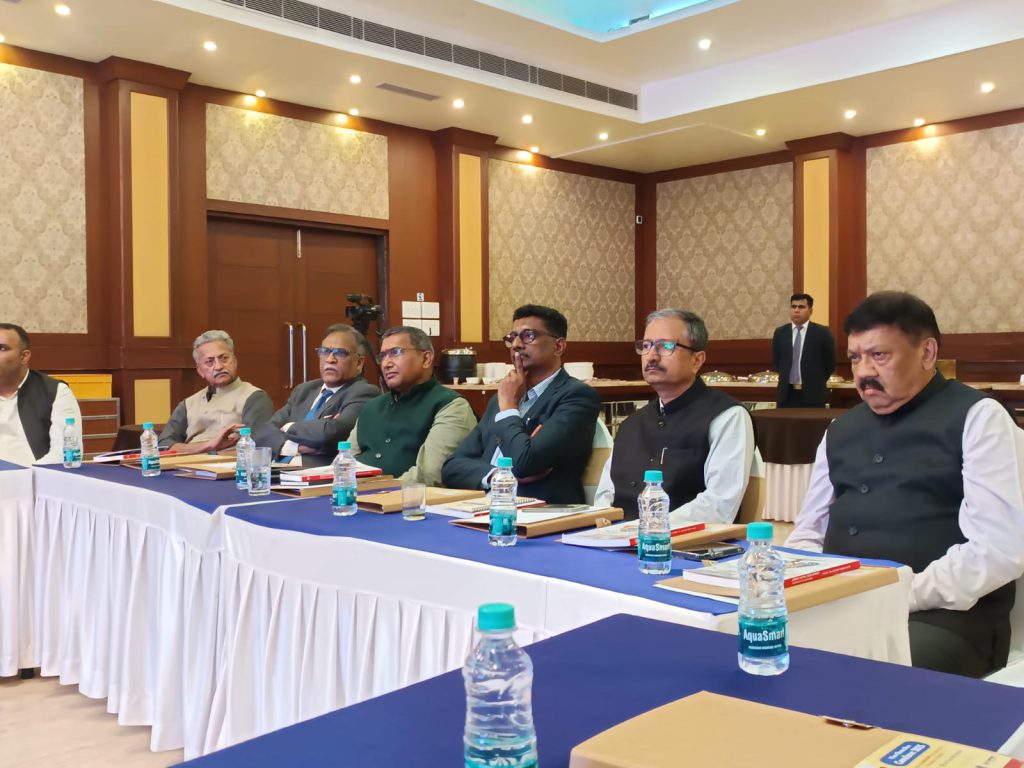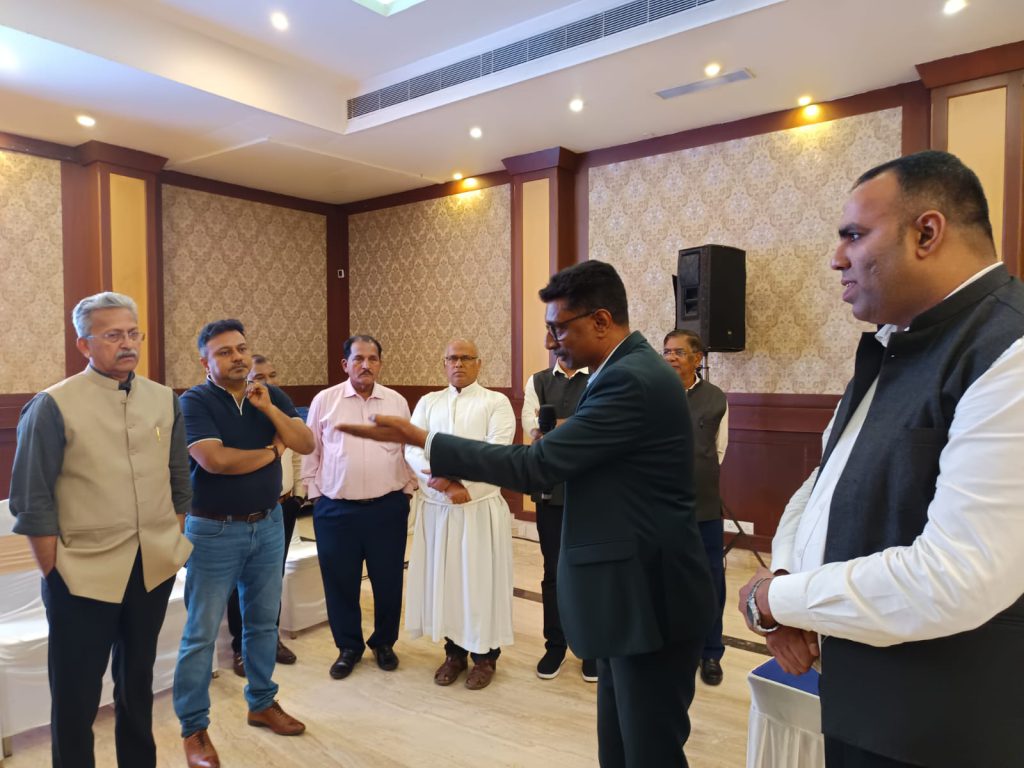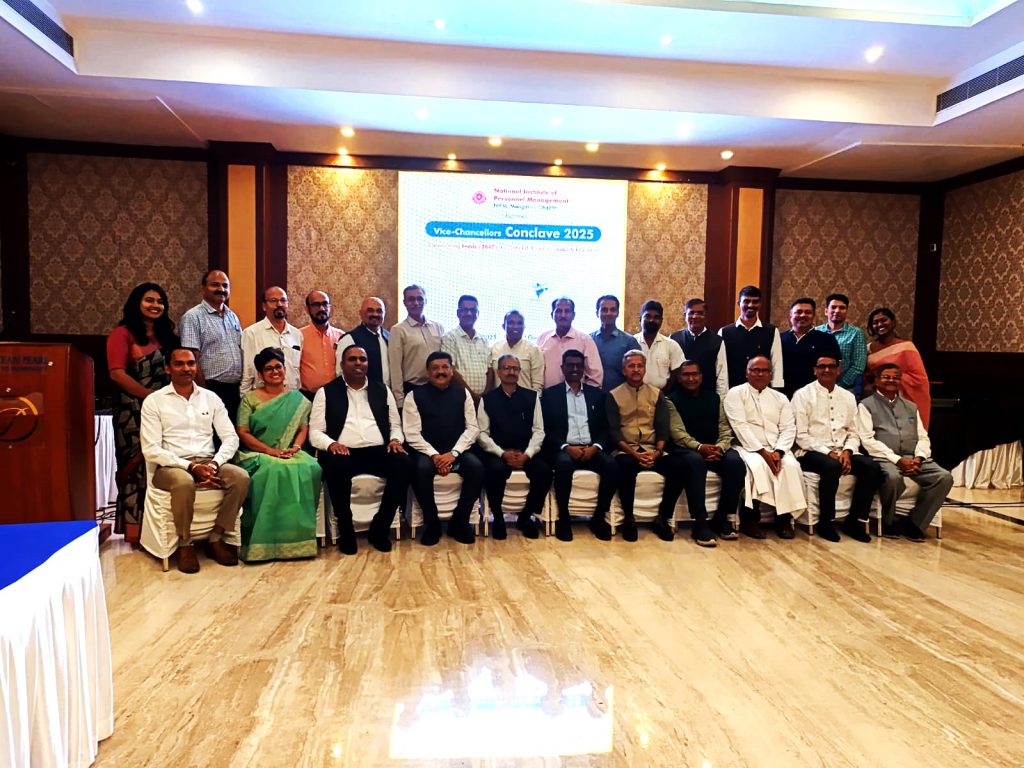The Evolving Role of Universities in a Changing World | Higher Education at Crossroads: VC’s Perspective from the Vice Chancellors’ Conclave | Global TV
NV Paulose, Chairman, Global TV +91 98441 82044

Prof. PL Dharma, Vice Chancellor of Mangalore University, cut the cord that is covering the stigma that had caught the academia by its neck. He delivered a compelling speech that addressed critical challenges in academia. We need to talk about human beings first, much before we talk about human relations or human resources. We are not addressing the basic issues and keep on beating around the bush; he made it very clear and loud enough to present its alarming nature.
The role of universities in fostering human beings is more important than human relations or what we generally call human resources. The growing need in the society is to look at human beings before we talk about industry-academia collaboration. We are not behaving like human beings any more. We are someone this and that and that too with several divisions and sub divisions.
The Vice Chancellor was addressing the Vice Chancellors’ Conclave, organized by the NIPM Mangalore Chapter. It served as a platform for thought-provoking discussions on the evolving landscape of higher education. The Vice Chancellors talk was well taken by the eminent audience and there were responses expressing the need for us to look at the issue from the ground realities.
Prof. Dharma expressed his gratitude for the opportunity to engage with experts from the HR domain and academic administrators. It is good that we are coming together being human beings and look on to various issue from that single perspective. Reflecting on the changing dynamics of education, he noted, “Things are moving in a very different way, and we are trying to set things right within our capacities.” He emphasized the importance of support systems in solving many of the issues plaguing higher education institutions today.

Prof. Dharma posed a thought-provoking question which had answered every question posed by every other speaker in the Conclave: “When you don’t have human beings, how can you establish human relationships?” He elaborated on the need for universities to concentrate on developing individuals rather than merely institutionalizing relationships.
Managing a large institution like Mangalore University, which has over 180,000 students across 184 affiliated colleges, presents unique challenges. Prof. Dharma candidly acknowledged the difficulties in aligning academic output with industry expectations. “You all say your products are not good, but let me remind you, the products are produced by us. If we do not know what we need to produce to meet the industry’s needs, how can we expect the students to be employable?” He urged for a deeper understanding of curriculum design, where industry experts actively contribute to academic programs.

He recalled about past efforts to integrate industry with academia, particularly through an initiative at Mangalore University that sought to bring industry professionals into academic departments. Although such initiatives have shown promise, he highlighted the persisting issue of faculty shortages. “Qualified teachers are not in abundance today. Without competent educators, how can we expect to produce competent students?”
Prof. Dharma also addressed the broader socio-economic aspects of higher education. He observed that universities have historically grappled with caste, community, and regional barriers. He spoke about the market-driven approach to education, stating, “Economic spaces have occupied social spaces, and many social problems were felt and look like settled when market forces were integrated into academics.” We should look into the issues in detail; he said.
The need for skill development was another focal point of his address. He mentioned a recent agreement with universities in the United States, such as Massachusetts University, which aims to send AI experts to Mangalore University. While he welcomed this collaboration, he raised a critical question: “If universities focus solely on skills, then what happens to knowledge creation?

Universities should produce intellectuals, not just skilled workers.” He reiterated the need for a balanced approach where both skill development and knowledge production coexist.
Prof. Dharma called upon for support from industry professionals and HR experts. He emphasized the role of Mangalore University in shaping the academic landscape and urged stakeholders to contribute to its growth. “My university is a state university. We need help in incorporating modern pedagogical methods, industry collaborations, and human resource strategies to ensure that our students are well-prepared for the future.”
His address left a lasting impression on the audience, sparking discussions on how universities can bridge the gap between academia and industry. The conclave reaffirmed the importance of such dialogues in shaping the future of higher education, ensuring that students are not just academically proficient but also industry-ready.





